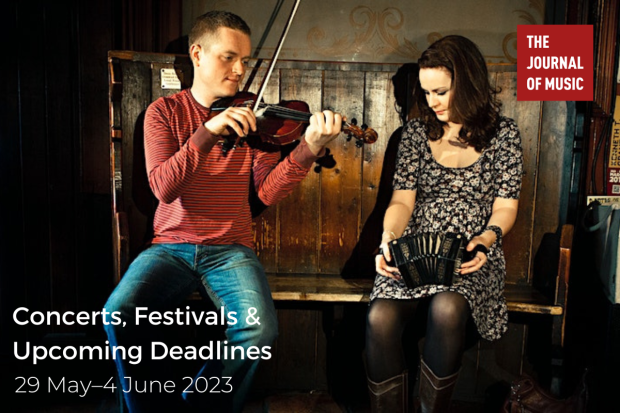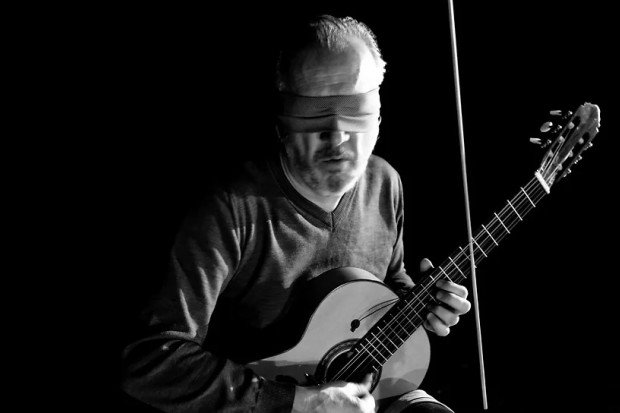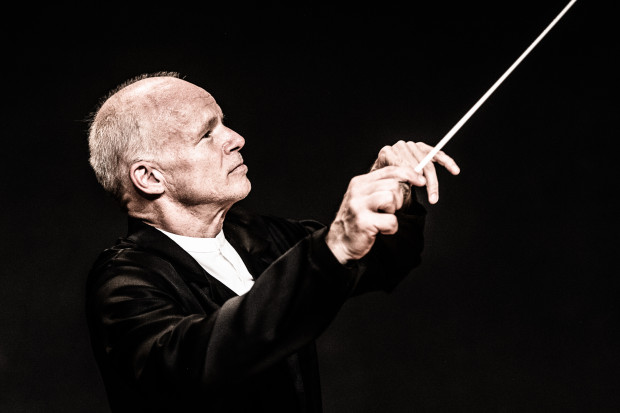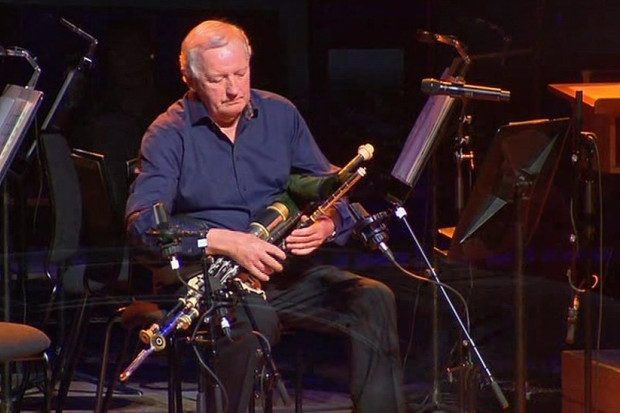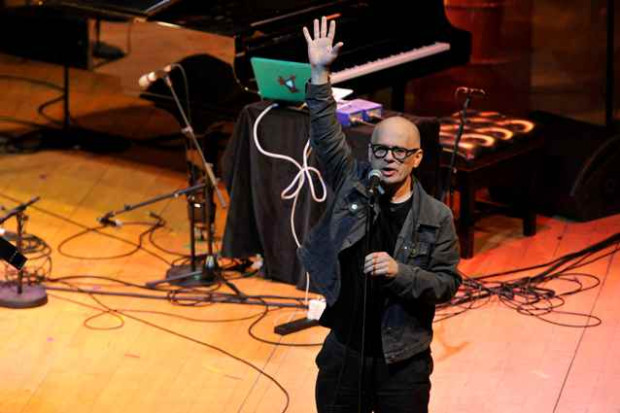Live Reviews: Composers' Choice – Michael Holohan
John Field Room, NCH
27 November 2006
Leaving The National Concert Hall, it took some time for the bemusingly warm sentiment to fade. If nothing else, the packed John Field room had been witness to a bizarre flurry of goodwill, most evident in Michael Holohan himself, whose warm appreciation of the musicians was unquestionable.
Holohan’s most interesting work was similarly his most bewildering. Portrait of the Artist for soprano (Melanie O’Reilly) and alto flute (Susan Doyle) is a jagged, angular setting of Paul Durcan’s poem. It was captivating for the amplified voice’s fleeting allusions to a gamut of vocal styles, from country singing to jazz, combined with occasional interspersals of flute arpeggiation. Rather than a shallow pastiche, Holohan has crafted something more intangible and mercurial.
Paleomusicologist Simon O’Dwyer’s throat singing and bronze-age horns were not just for show. The Dream of Aengus shows Holohan’s orchestrational control at its best: the uilleann pipes, electric guitar and prehistoric instruments were integrated, concealed almost, within the ensemble. Despite the unusual combination, Holohan achieves a rich, homogenous sound. Ár nAthair achieved a similar ensemble texture but disappointed with its abrupt end – the piece stopped short when the text had run out, and I got the feeling the words had got the better of the music.
A perfunctory attitude to setting text also afflicted the choral pieces. Dowth, a four-part setting of a Susan Connolly poem, was least remarkable in this respect. The ornamentation and bass drone in the bilingual Winter in Meath lent some distinction to the work and, to a degree, exposed the influence of traditional Irish music on Holohan’s writing.
There were many such glimpses into the composer’s own heritage. Xenakis, Rachmaninov, Debussy, Messiaen and music for the uilleann pipes performed by Mick O’Brien – Holohan’s programming showed that these apparently disparate forces share unexpected qualities. Most of these pieces shared with Holohan’s a tranquility, not necessarily slow or quiet, but unhurried. Iannis Xenakis’ Á R (Hommage á Ravel) shares with Holohan’s own piano miniatures, Monaincha and High Cross: Monasterboice, an emphatic block-like organisation of material.
I could not reconcile myself to the final piece, One Fine Day, a ten-part song cycle set to poems of Samuel Beckett, with compassionate readings by Barry McGovern. I should point out that the piece was musically engaging, with a delicately balanced, often thin, texture, and soprano Anna Devin should not go unmentioned for her clear-cut and involved delivery. A reoccuring grace note, which characterises the vocal line throughout, is but one feature unifying the work. The songs proceed at a steady pace and in this respect lean toward homogeneity; but sharp contrast would be out of place in this music.
The issue I had was with the integration of Beckett’s text into the music:
I would like for my love to die And the rain / to be raining on the streets and on me, / mourning her who thought she loved me
Without ruling out the possibility – the only example I can think of where Beckett has been set effectively is Morton Feldman’s Neither and that was the result of a direct collaboration (of sorts) – it’s hard to imagine how a musical treatment of these words could preserve their intrinsic purity. Holohan frequently repeats and rejumbles fragments, imposing a symmetrical form on otherwise irregular poetry. Where the dirge-like monotone of McGovern’s reading encapsulates the poetry’s sense of resignation, Holohan’s melodious setting connects a conflicting optimism. Something as simple as refraining from vocalising the text in the soprano would yield a stronger piece. Diluting these poems with such colouristic music is adding water to a fine whiskey.
Published on 1 January 2007
Benedict Schlepper-Connolly is a composer and a director of Ergodos, a production company and record label. schlepperconnolly.com












